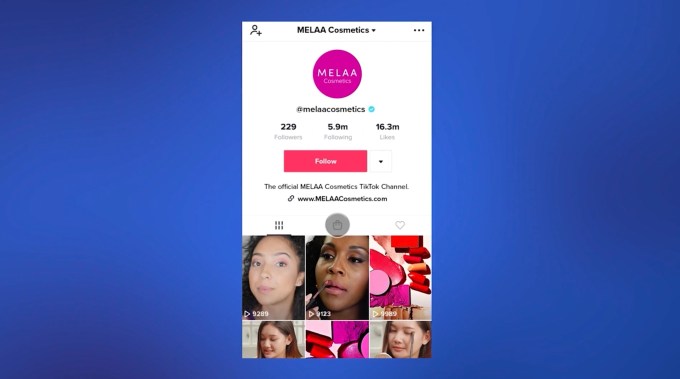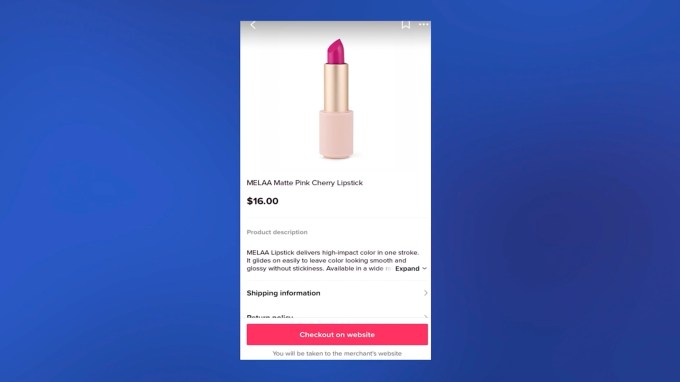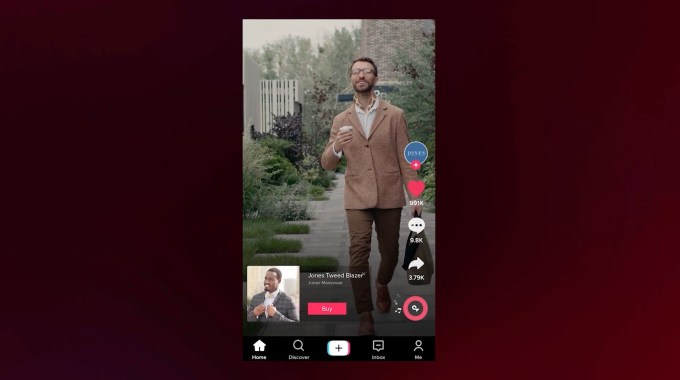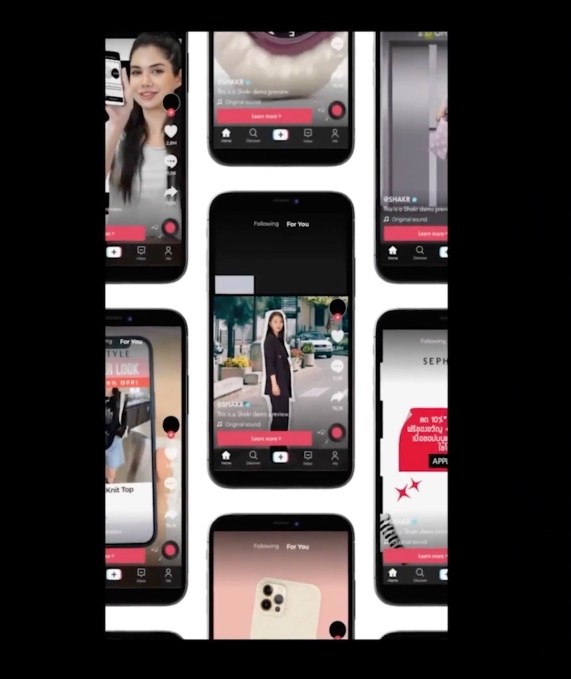TikTok is expanding its investment in e-commerce. Earlier this year, the video platform began piloting TikTok Shopping in the U.S., U.K., and Canada, in partnership with Shopify. The deal allowed Shopify merchants with a TikTok For Business account to add a Shopping tab to their TikTok profiles and sync their product catalogs to the app to create mini-storefronts. Now, TikTok is announcing a slate of new brand partners for TikTok Shopping, including Square, Ecwid, and PrestaShop, with Wix, SHOPLINE, OpenCart, and BASE coming soon. It also introduced a fuller slate of solutions for TikTok commerce, including ad products and later this year, a TikTok Shopping API.
The company detailed its further plans for TikTok Shopping at an online event called TikTok World on Tuesday.
Here, TikTok shared how popular commerce had become on its platform. For example, it noted that the #TikTokMadeMeBuyIt hashtag — which users post when sharing products they had discovered through TikTok videos — has grown to include 4.6 billion views and is still climbing. The company also touted how well its video could push users from product awareness to action, claiming that, compared with competitors, TikTok users are 1.7 times more likely to have purchased products through the app, citing a survey conducted by Material in August 2021.

Image Credits: TikTok Shopping
The company said it’s able to work with online merchants in a couple of different ways. One is a direct integration and full-service shopping solution where TikTok manages everything from shipping to fulfillment and point-of-purchase. This is a system TikTok has been testing in Indonesia, as TechCrunch previously reported. It’s also now available in the U.K.
The second way involves working with third-party commerce partners, like Shopify, who can provide sellers with essential backend tools and support.
Later this year, TikTok said it would also launch a TikTok Shopping API, which will allow businesses to integrate their product catalogs directly into TikTok, and eventually include those products in their organic content.

Image Credits: TikTok Shopping
In the meantime, TikTok will offer businesses a handful of other tools to get their products in front of consumers.
With Product Links, first introduced alongside the TikTok Shopping pilot, brands can highlight one or more products directly from an organic TikTok video, which then points uses to product detail pages on their own website. This is essentially TikTok’s version of something like Instagram’s product tags and stickers.
With the new LIVE shopping feature, brands on TikTok can connect with users in the community in real-time, and share dynamic links to products and services while the content is streaming live. In the past, Walmart hosted a couple of LIVE shopping events as a pilot partner on the feature.
The company also now offers a trio of in-feed ad products for online shopping: Collection Ads, Dynamic Showcase Ads (DSAs), and Lead Generation.

Image Credits: TikTok (Collection Ad)
Collection Ads are a new ad product that allows brands to include custom, swipeable product cards in their in-feed videos. Each card can feature a different product for sale and, when tapped, brings users to a fast-loading instant gallery page where TikTok users can browse items and make a purchase. This type of ad can be used to drive traffic to a merchant’s website, and can be particularly useful for things like limited-time deals, seasonal sales, and recent launches. TikTok cited one case study with a brand called Princess Polly which saw a 6x return on ad spend and an over 50% increase on overall product page visits with the ad.
Dynamic Showcase Ads are another new product, and allow brands to promote thousands (or even millions) of product SKUs via personalized video ads. DSA will generate video ads that target specific audiences based on their interests and commerce activities, such as adding items to a cart or viewing a product. TikTok has created a suite of DSA templates that follow the platform’s creative principles of offering creative clips with music and text overlays. TikTok claims early DSA tests indicate the templates are driving higher click-through rates and conversion rates for advertisers but didn’t share metrics. On this effort, it’s partnered with video marketing company SHAKR, plus Productsup and feedonomics who can help integrate product catalogs.

Image Credits: TikTok (DSA)
Lead Generation, meanwhile, continues to be available within in-feed video ads offering brands an easy way to collect information from TikTok users through online forms. These ads are best for businesses that have longer sales cycles, like audio and education. It has also partnered with Zapier and LeadsBridge to automatically connect a brand’s CRM to TikTok for a lead generation campaign. In a test with Southeast Asian marketplace Lazada, nearly half of the users who signed up on a form during the first week of a lead gen campaign ended up selling on the marketplace, TikTok says.

Image Credits: Lazada on TikTok
Combined, this suite of solutions is what makes up TikTok Shopping.
“The future of commerce on TikTok is a shopping experience that allows brands of all sizes to tap into the enthusiasm of our user base,” said TikTok Shopping Head of Product, Javier Irigoyen. “The magic of TikTok happens in the For You page, where e-commerce content is recommended to our users in the same way as short videos and live streams. TikTok is a place where users and brands can connect directly, and where an end-to-end shopping experience can happen organically. That’s the basis on which we’re building a long-term commerce division,” he said.
from TechCrunch
via Click me for Details
No comments:
Post a Comment